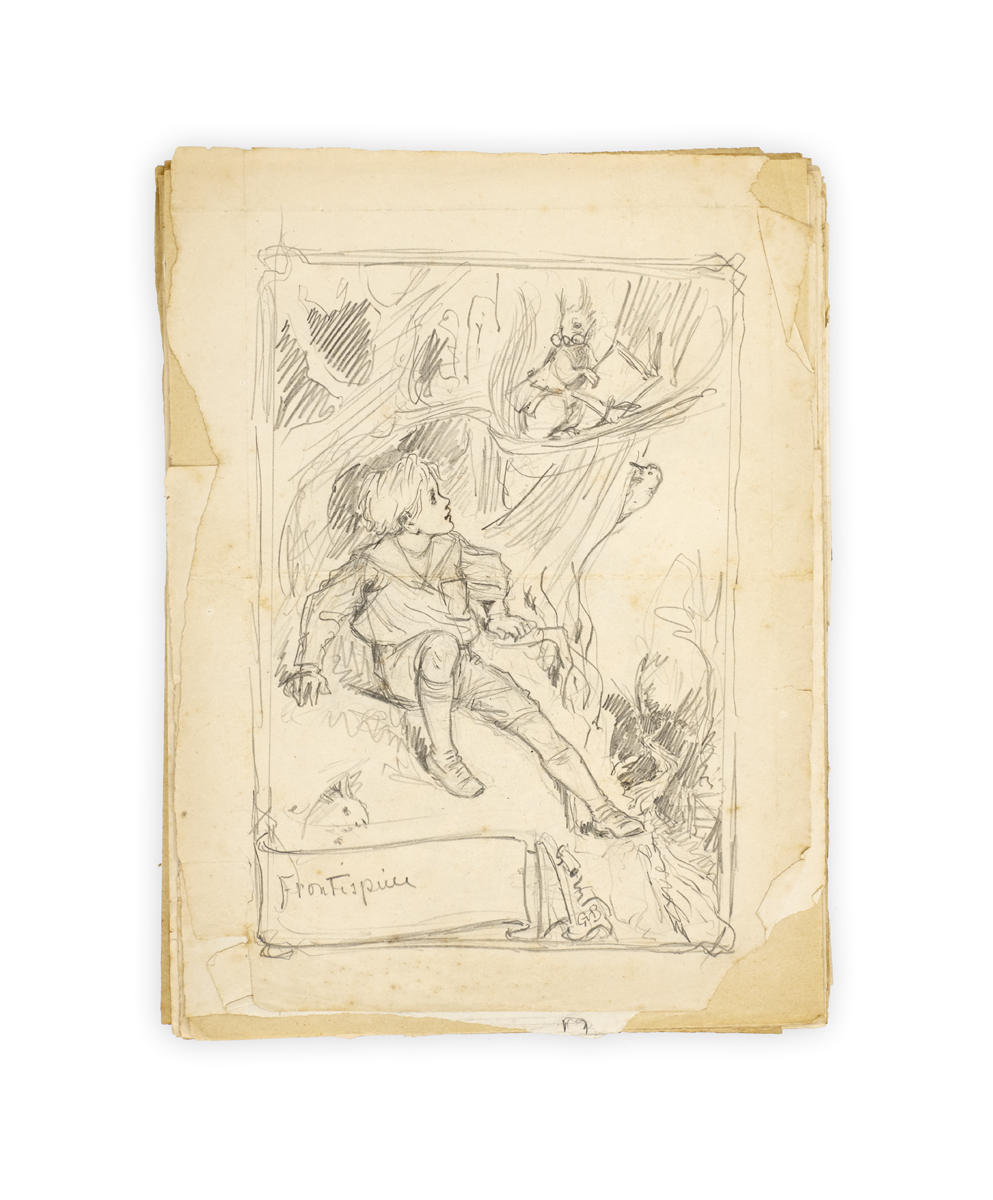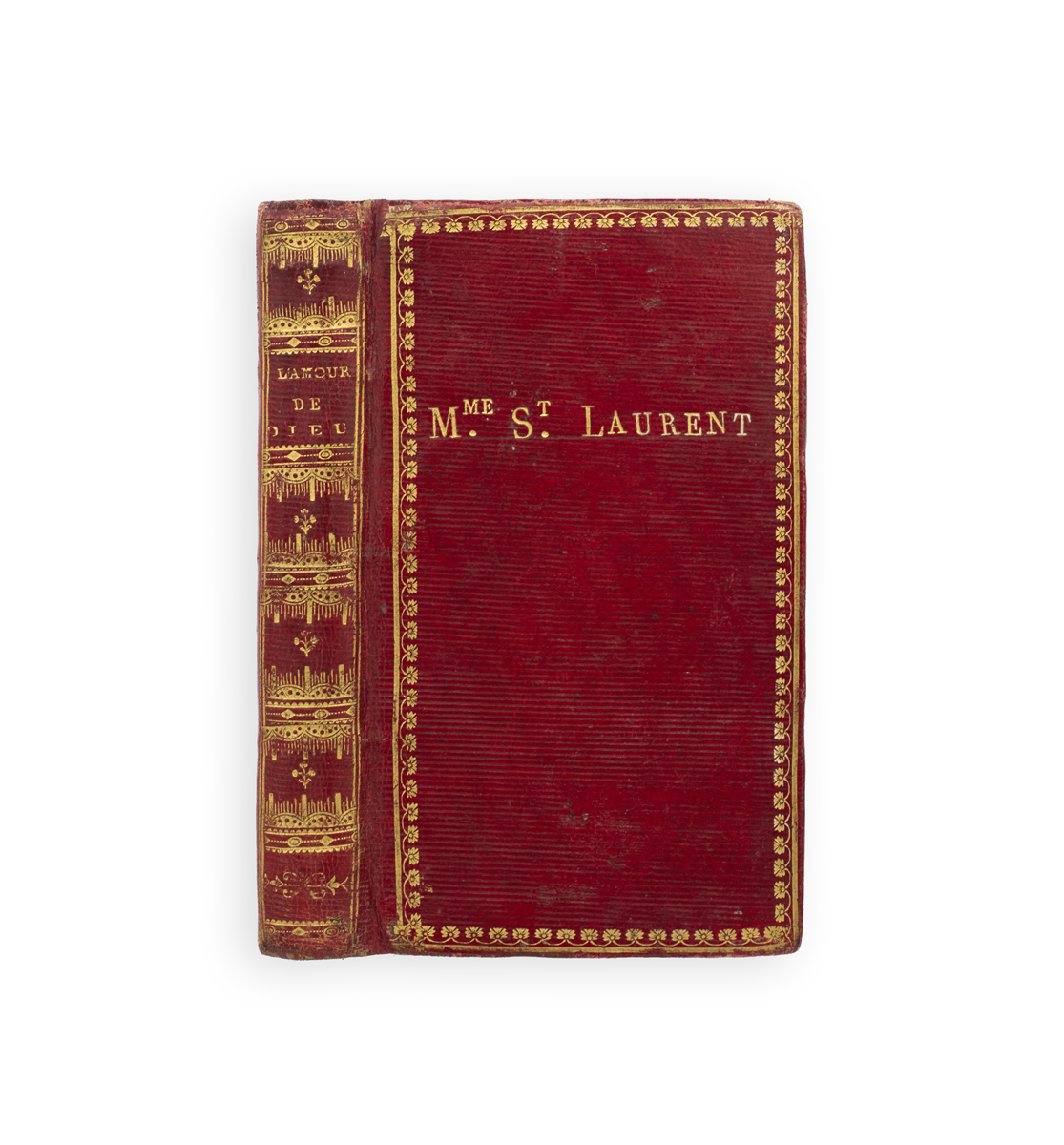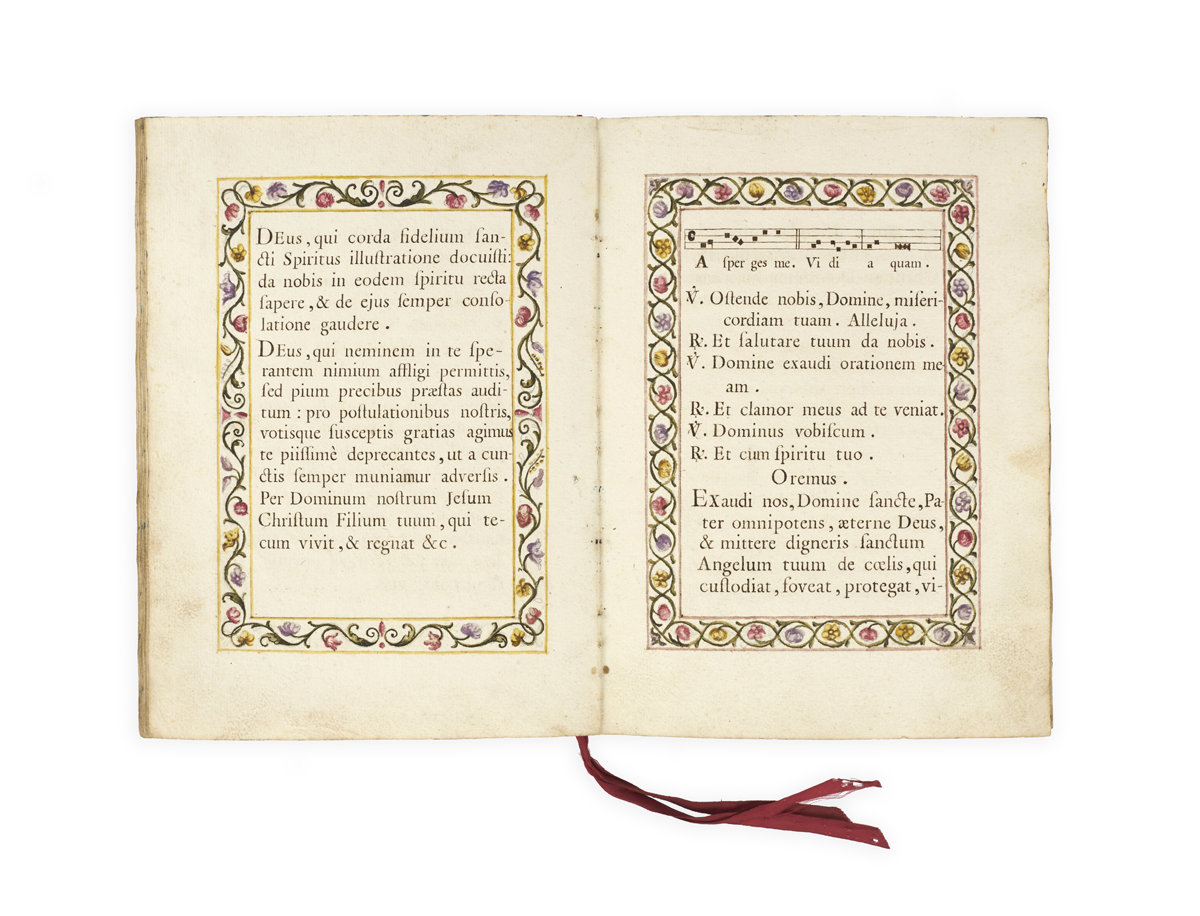
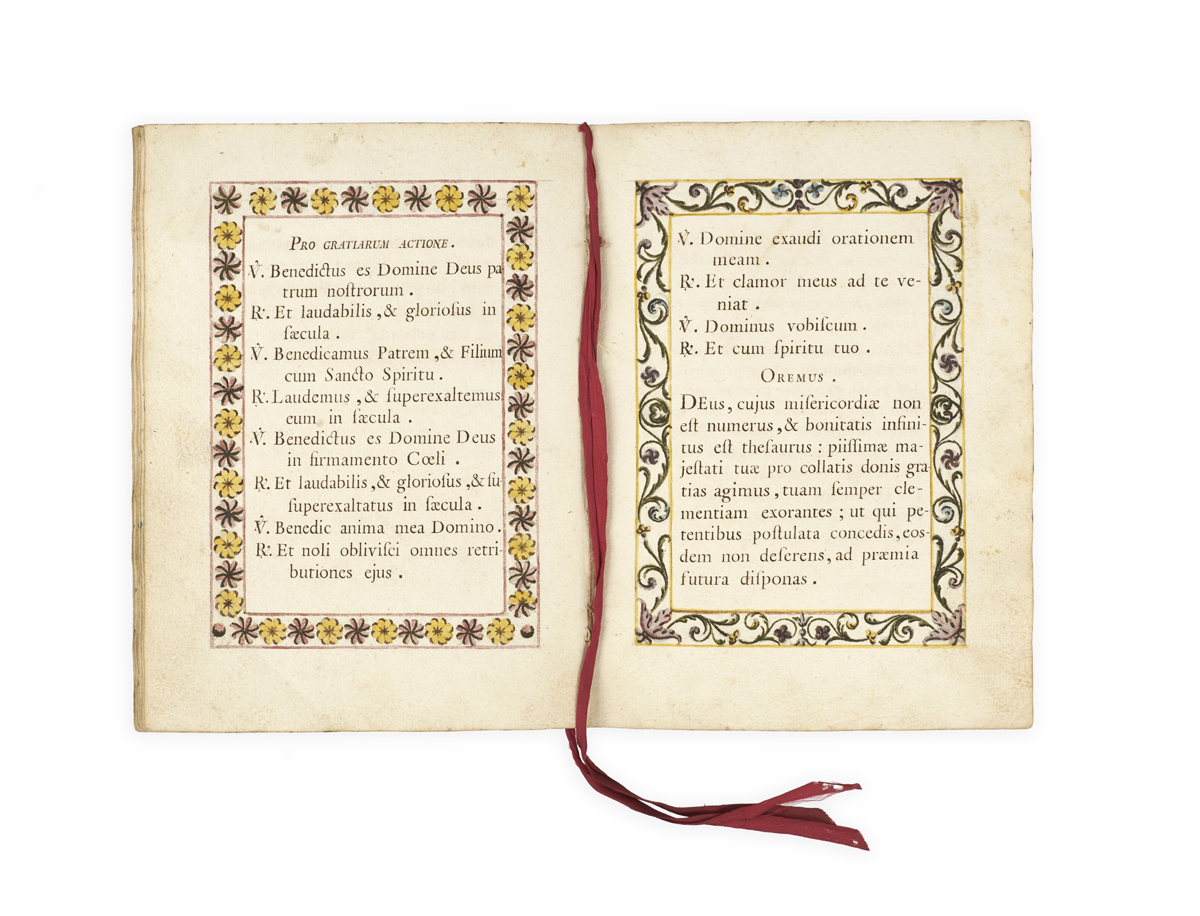
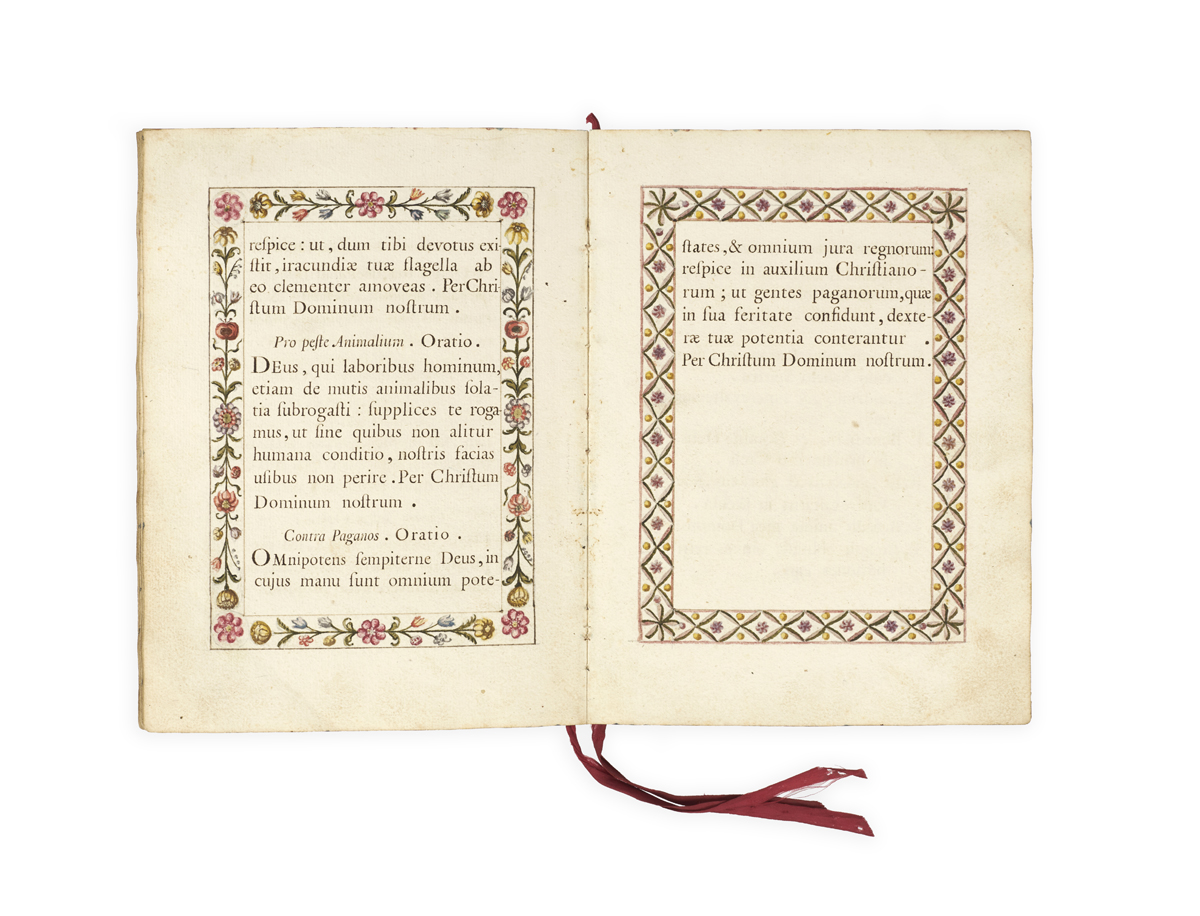
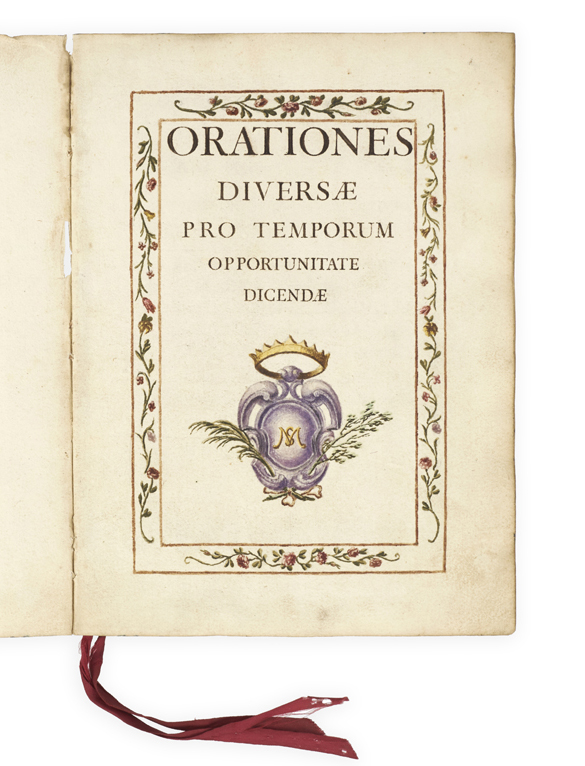
PRACTICAL PRAYER
[PRAYERS.]
‘Orationes diversae pro temporum opportunitate dicendae’.
[Likely Lucca, late eighteenth century.]
Manuscript on paper, 4to, pp. [16] + blanks; neatly written in Latin in black ink, 16 lines to a page, 2 lines of manuscript music, each page within a different decorative border in coloured inks, final leaf completed later and dated 1828; lower corners lightly thumbed, otherwise excellent; disbound; cartouche to title with monogram ‘MS’.
A delightful manuscript prayerbook for use in communal worship, most likely for a rural community, with prayers for help in times of plagues and of animal diseases, prayers seeking protection from storms and alleviation of droughts, for times of earthquakes, for the sick, and against pagans. The varied borders range from geometric designs (many constructed with a compass) to charming arrangements of mixed flowers.
The manuscript was augmented in the early nineteenth-century, with two final pages of prayers added in imitation of the earlier decorative scheme, including prayers for the health of the people of Lucca and for Duke Carlo Ludovico (r. 1824-1847).
